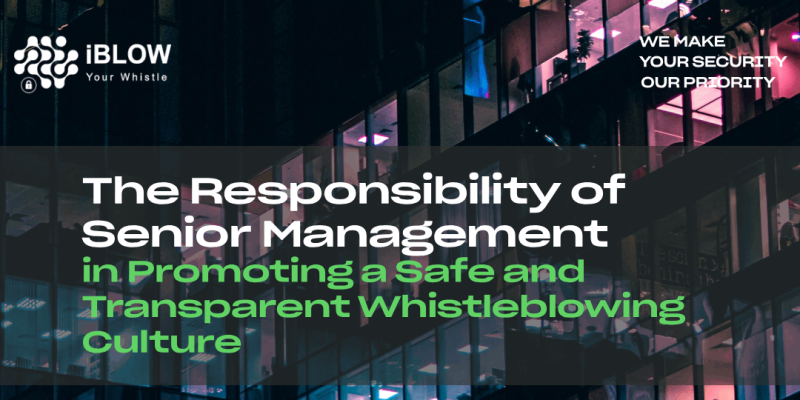Introduction
Legal and ethical compliance is a fundamental pillar for the success and sustainability of any organization. In the current context, whistleblowing laws play a crucial role in identifying and correcting unethical or illegal behavior within companies. In this scenario, top management plays a decisive role in promoting an organizational culture that values transparency and provides safe channels for whistleblowing.
The role of top management
Top management’s responsibility goes beyond simply adhering to whistleblowing laws; it must actively take the lead in promoting a culture that encourages integrity and ethics at all levels of the organization. This starts with leaders demonstrating their commitment by showing that compliance is a strategic priority.
Implementing Appropriate Policies and Procedures
Senior management is responsible for establishing clear and accessible policies and procedures relating to whistleblowing. These guidelines must be effectively communicated to all employees, ensuring that they understand the channels available to report suspicious activity without fear of reprisal.
Fostering a Culture of Openness and Transparency
Promoting an organizational culture that values openness and transparency is crucial. Senior management must lead by example, effectively communicating the actions taken in response to reports received – ensuring wherever possible that the whistleblower’s expectations are fully met, where appropriate, and highlighting the importance of these initiatives for the well-being of the organization.
Whistleblower protection
Senior management has a responsibility to ensure that whistleblowers are protected from any kind of retaliation. This involves setting up mechanisms to maintain the confidentiality and/or anonymity of reports, ensuring the choice of applications that guarantee maximum security – not what seems to be enough, guaranteeing exclusive access control for each report / whistleblower / person responsible for handling the report in question, as well as implementing measures to avoid any form of discrimination against whistleblowers. No IT person should have access to the content of complaints, nor to information that could make it possible to identify whistleblowers.
Education and awareness
Senior management should invest in education and awareness programs for all employees, highlighting the importance of ethical reporting and the benefits of an ethical organizational culture. This can include periodic training, seminars and awareness campaigns.
Conclusion
Senior management plays an essential role in complying with whistleblowing law and promoting a whistleblowing culture that is safe and transparent. By demonstrating commitment, establishing clear policies, fostering transparency, protecting whistleblowers and investing in educational programs, organizational leaders contribute significantly to building an ethical and resilient company. The effective implementation of these practices not only meets legal requirements, but also strengthens the organization’s reputation and the trust of its employees and stakeholders.
Yes, I want to learn the best practices for leaders under whistleblowing law.
You can also consult other articles that may be of interest to you at: https://www.iblow.eu/news
Published: 2023.12.14
